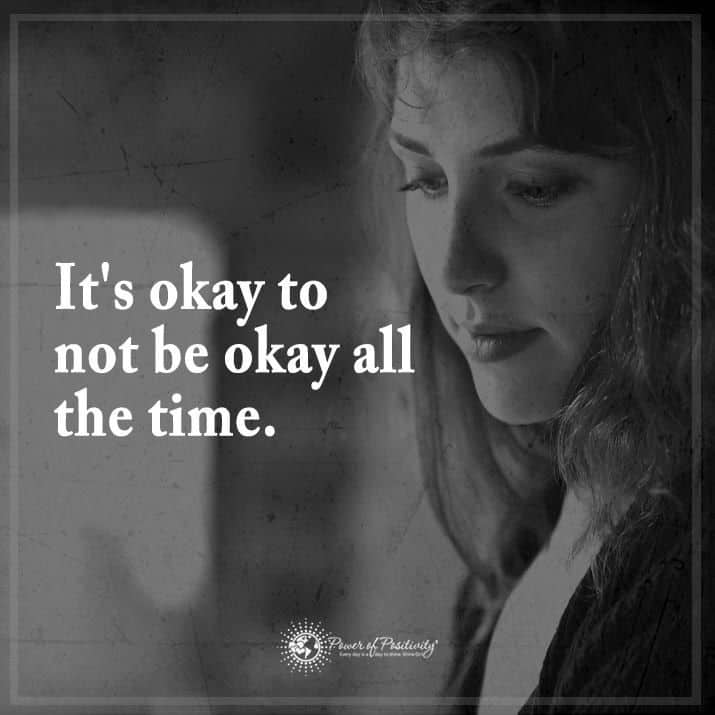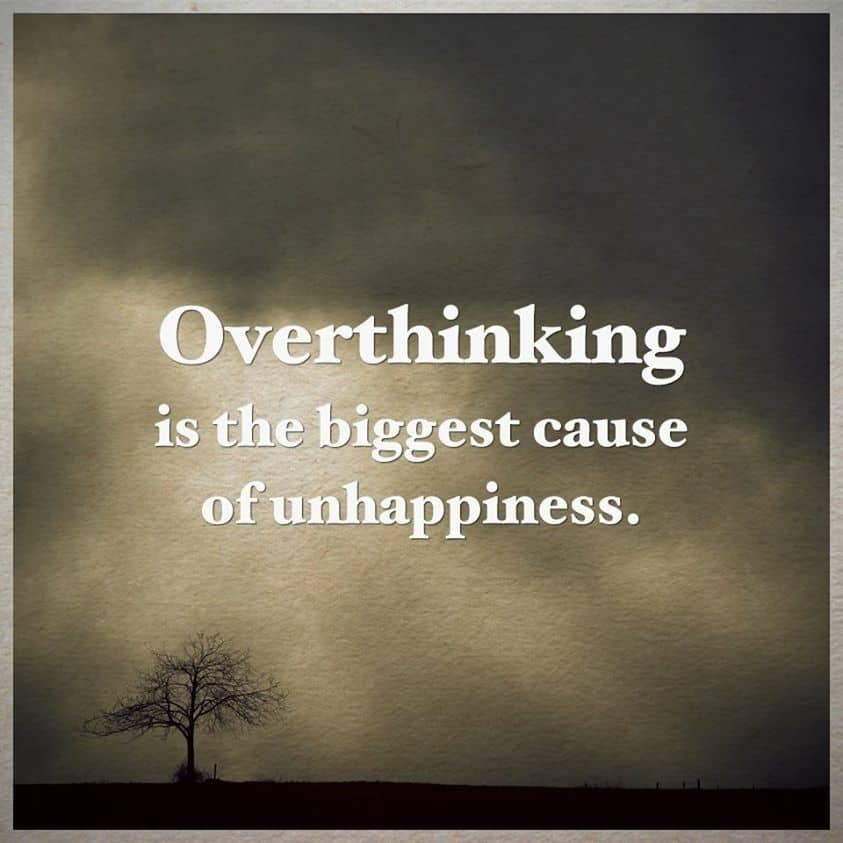A nervous breakdown refers to a severe state of mental distress, whereby you find yourself unable to perform daily life tasks. You may be unable to function entirely, and the breakdown may occur comorbidly with mental health conditions like stress disorders, depressive disorders, or anxiety disorders.
Multiple different factors go into defining a mental breakdown, and there’s no one clear meaning for it. Essentially, if a severe negative physical or emotional state causes non-functionality, it can be considered a nervous breakdown. It can be frightening to undergo such an ordeal, leaving you feeling confused and guilty, which only worsens matters.
But how can you spot the signs that a nervous breakdown is on the horizons? What can you do to prevent or avoid it, based on these symptoms? Here is how psychiatrists reveal 9 early signs of a nervous breakdown and how to avoid it to help you better understand.
1. Changes In Sleep Patterns
Your sleep pattern is typically crucial to your health. When it gets jogged out of the norm, it can increase anxiety levels, which increases sleep problems, which increases more anxiety. It’s a vicious cycle that can eventually send you spiraling into a nervous breakdown.
Doctor of psychology and medical psychology and psychiatry professor Erin Engle notes that these changes can vary from person to person. You may:
- Start sleeping in excess as a method of avoiding the issues of daily life.
- Be unable to sleep at all due to buildups of anxiety and stress from a brain working in constant overdrive.
- Wind up with very unusual or uneven sleep-wake habits that harm you in the long run
 When you notice sleep changes, do what you can to regulate the time you spend in bed. Keep the same waking and sleeping hours, make sure your bedroom environment is positive for relaxation, or even take melatonin supplements to help you keep the right schedule.
When you notice sleep changes, do what you can to regulate the time you spend in bed. Keep the same waking and sleeping hours, make sure your bedroom environment is positive for relaxation, or even take melatonin supplements to help you keep the right schedule.
2. Daily Life Feels Unmanageable
A little bit of stress doesn’t usually ruin your entire day. But if you’re at the point where everyday life is impossible to perform, and you’re struggling with basic function, you could be in dire need of some rest.
Licensed clinical social worker and Newport Academy program development director Heather Senior Monroe states that when even small daily tasks start feeling like too much, or when even simple social situations are feeling impossible, it’s a sign of a nervous breakdown. You need to step back and take a break until life feels like something you can handle again. If possible, seeking help from loved ones may be necessary, too.
3. An Inability To Concentrate
When you have short bursts of stress, it can surprisingly boost your brainpower by sending hormones running at top speed to fulfill certain tasks. These hormones help with concentration and memory.
But when stress becomes a long-term problem, it can make focusing on anything impossible because you’re extra attuned to external distractions, says psychiatrist, medical doctor, and neurologist David A. Merrill, Ph.D. You could start losing the ability to concentrate at work or even endanger yourself by losing focus when you’re doing something like driving.
In fact, extreme stress levels can eventually lead to a lot of cortisol, which is a stress hormone responsible for fight-or-flight. Research states that this can even cause you to experience memory loss. It might wind up being logged as something traumatic for you and repressed. If you’re noticing your memory getting shoddy or are losing concentration at work, it might be time to take a breather before you hit nervous breakdown mode.
4. Fatigue is a Sign of Impending Nervous Breakdown
Fatigue is a common symptom of a nervous breakdown approach. This is even more true when you can’t pinpoint any specific reason for the fatigue. Engle states that feelings of extreme weakness are also somewhat common among those leading to a nervous breakdown.
This fatigue may also include:
- A lack of interest in activities that you usually like
- A loss in libido or an inability to perform intimately
- Waking up feeling tired despite a long rest
Fatigue like this may require prolonged resting beyond just a couple of nights of sleep. You may also need to try a change of pace from your everyday routine. It’s also a good idea to see a doctor if this kind of fatigue lasts for a week or more, as it may point to other health issues.
5. You Have An Upset Stomach All The Time
An occasional upset stomach isn’t necessarily bad, even when it’s caused by stress. But constant discomfort of the belly mixed with other symptoms could be a sign of irritable bowel syndrome, which studies have found has links to chronic stress. Symptoms of IBS include:
- Diarrhea
- Bloating
- Abdominal pain
- Gas
- Constipation
The Anxiety and Depression Association of America states that a huge percentage of individuals who received irritable bowel syndrome, or IBS, treatment experience a mental health condition of some kind. This may include depression, anxiety, or stress disorders. As such, if you have IBS, it could likely be because of a mental health problem. Seeking treatment can help calm down the IBS.
 6. Breathing Difficulties
6. Breathing Difficulties
Trouble breathing can seem like a serious health condition – and it still is something worth checking out. But keep in mind that it can also simply be a classic symptom of anxiety. If you find yourself having trouble inhaling and exhaling during times of stress, you’re experiencing normal anxiety symptoms that could be pointing to a nervous breakdown waiting to happen.
The body’s natural stress response causes rapid, shallow breathing when anxious to help bring oxygen more rapidly throughout the body. When needed, this helps the body kick to overdrive. When not needed, it can just cause unnecessary distress.
Learn to use breathing exercises to help keep yourself calm when you notice these breathing troubles. Learning to regulate breathing can also help you with stress management, so it’s not a bad thing to try out. However, if breathing difficulties occur very frequently, it’s a good idea to try addressing the potential root of the matter, as it could be a sign of something more physically harmful.
7. Your Appetite Has Changed
When you’re under stress, the body’s neurotransmitters cause a fight-or-flight instinct, which involves a surge of adrenaline through the body. When that adrenaline dies down, though, the body has lost a lot of energy, triggering appetite changes that seek to refuel, says Merrill.
But appetite doesn’t just change in one way. It’s possible that it can be affected in numerous different manners, says Engle. Here are some examples of ways your appetite may have changed:
- A lack of appetite
- Excessive appetite
- Consumption of an excess of junk food
- Lack of proper meal preparation
- Odd mealtimes
These shifts in appetite can point to chronic stress, which may then lead to a nervous breakdown. If you’re experiencing difficulty maintaining a positive eating schedule, it may help to stick to a meal timetable. That way, you can focus on eating at set times instead of realizing you haven’t eaten all day or have eaten way too often.
If you tend to reach for unhealthy snacks, try opting for foods that help reduce stress instead. Unhealthy foods can actually further worsen stress hormones production, so you don’t want to give in to those cravings. Here are some foods that help with stress management:
- Oranges
- Oatmeal
- Okra
- Sunflower seeds
- Potatoes
- Salmon
- Green tea
- Dark chocolate
- Carrots
- Spinach
8. You Withdraw
Being around the people you care about and who care about you is extremely crucial to maintaining positive mental health. Unfortunately, those on the verge of a nervous breakdown may instinctively withdraw from social situations. They may feel unmotivated by outings and disinterested in any interaction.
Not sure if you’re withdrawing or just being your introverted self? Symptoms of social withdrawal include:
- Isolating yourself in your home and locking yourself away from the world
- Continually calling in sick to work or simply not showing up.
- Avoiding any social function and canceling those you agree to
- Maintaining bad hygiene because you know no one will see you.
How can you combat this? Unfortunately, the only real way to overcome this is to force yourself to go out anyway. If possible, try roping in a trusted friend or family member to help you out. Sometimes, being around positive people will make you realize you enjoy social outings. Other things, the support gained from the people around you will bolster your mood, reducing the risk of a breakdown.
9. You Experience Feelings Of Dread
Do you find yourself experiencing odd feelings of worry, even when you can’t pinpoint a cause? This can result from overwhelming stress bubbling beneath the surface, ready to spew forward in a breakdown. This is common because stress can cause typical anxieties to be increased out of proportion, says Merrill.
You might also notice that tiny things are being perceived as extremely negative by you, even when that’s unreasonable for you to think. It can be confusing and lead to feelings of no control and general hopelessness.
This type of anxiety is often deeply rooted and needs to be treated at its core. Professional help is recommended, but if you need some personal home remedies, here are some ideas:
- Drink chamomile tea, which has been found to improve relaxation and positive thinking
- Try bathing in Epsom salts to enjoy some of the stress-relieving properties of magnesium, as found by studies
- Go out in the morning sun to enjoy research-proven stress reduction and other positive health benefits.
 Final Thoughts On Some Early Signs Of A Nervous Breakdown And How To Avoid It
Final Thoughts On Some Early Signs Of A Nervous Breakdown And How To Avoid It
No one wants to have a nervous breakdown, which is why you must catch the signs of one before it happens. This will allow you to take steps to avoid the breakdown, preventing a lot of pain and difficulty for you later on. If you need help, contact a psychiatrist, psychologist, therapist, or similar mental health professional. A little guidance can help point you in the right direction as far as management is concerned!




















